The views expressed in our content reflect individual perspectives and do not represent the authoritative views of the Baha'i Faith.
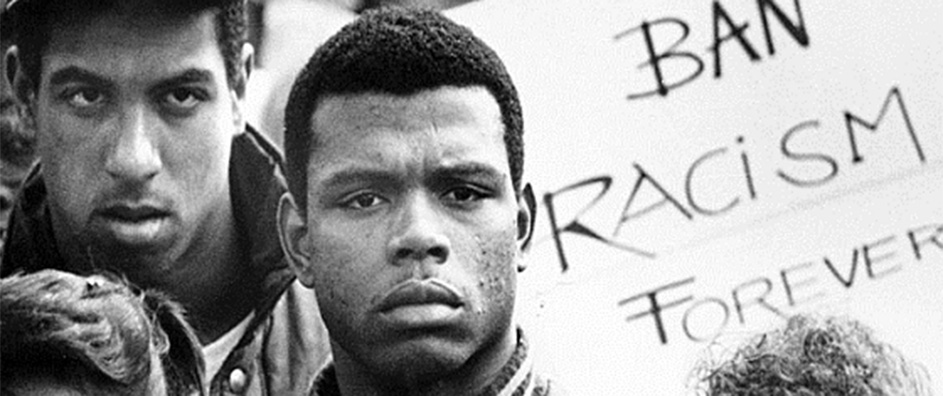 This is Part 3 Sterling, Bundy and We Are One :
This is Part 3 Sterling, Bundy and We Are One :
My friend Bob loves sports cars. I helped him work on an old Austin Healey Sprite years ago, getting it ready for a race. He finished his work and took the Sprite out for a test drive. He rounded a corner a little too fast, realized too late that a truck had spilled gravel on the curve, and too quickly found himself upside down, being dragged underneath the little roadster. Ouch.
Ever hear the term “road rash”? Bob lost a lot of epidermis that day. Luckily, that was all he lost. He soon recovered, and the hospital released him. It took a while, but the abrasions healed and he looked good as new. For a long time afterward, though, the thousands of tiny pieces of gravel embedded beneath his skin worked their way out, emerging one at a time. We started calling him “Rocky.”
Bob’s experience, it struck me the other day, forms an apt metaphor for how we deal with our country’s deeply-embedded racism. While things might look healthy on the surface of our multicultural society, America’s centuries-long battle over racial prejudice hasn’t really healed. It pushes itself to the surface regularly, and we all continue to face the consequences of its terrible, violent legacy of hatred.
The recent media-driven outbreaks of overt racism in America, generated by the audiotape of a private conversation with a real estate and basketball mogul and on-camera interview footage with an anarchist rancher, have painfully reminded everyone that the American brand of race-based ignorance, prejudice and hatred has not gone away. Of course, people of color don’t need another reminder. But white people, we who do not typically face the reality of racial prejudice every minute of every day, can usually benefit from one.
In another way, too, these kinds of ugly reminders serve a valuable public function – they give us another reason to have the conversations and do the hard self-searching moral inventory necessary to actually deal with the issue and the reality of racism. They prompt us to review our own inner landscape and ask ourselves some tough questions about what we’ve personally done to advance the healing. They challenge us to truly examine our own feelings, thoughts and prejudices – yes, let’s face it, we all have them – and do the essentially spiritual work of freeing ourselves from their persistent grip.
From a Baha’i perspective, that hard work begins with seeing beyond skin color to the spiritual heart of every person:
God maketh no distinction between the white and the black. If the hearts are pure both are acceptable unto Him. God is no respecter of persons on account of either color or race. All colors are acceptable unto Him, be they white, black, or yellow. Inasmuch as all were created in the image of God, we must bring ourselves to realize that all embody divine possibilities. – Abdu’l-Baha, The Advent of Divine Justice, p. 37.
So when these public racist outbreaks do occur, they give us all a fresh opportunity to broach the uncomfortable and challenging subject of our culture’s racism with people who normally might not be open to the discussion. They allow us to ask the open-ended question: “What do you think?” and then follow it up with an actual exchange of views. They give us a window of opportunity to help us confront our own prejudices. They may even let us push out a little of the pain, just like a healthy body gradually expels foreign objects.
The Baha’i writings address racism openly and directly, establishing a clearly-delineated path toward its resolution. Speaking boldly to those who insist that racial prejudice is somehow inherent or unavoidable, Abdu’l-Baha tells us repeatedly that prejudice of any kind destroys human development:
Baha’u’llah has also taught that prejudices, whether religious, racial, patriotic or political are destructive to the foundations of human development. Prejudices of any kind are the destroyers of human happiness and welfare. Until they are dispelled the advancement of the world of humanity is not possible, yet racial, religious and national bias are observed everywhere. For thousands of years the world of humanity has been agitated and disturbed by prejudices. As long as it prevails, warfare, animosity and hatred will continue. Therefore if we seek to establish peace we must cast aside this obstacle, for otherwise agreement and composure are not to be attained. – Abdu’l-Baha, Baha’i World Faith, p. 240.
The world of humanity is like a garden and the various races are the flowers which constitute its adornment and decoration. In the animal kingdom also we find variety of color. See how the doves differ in beauty yet they live together in perfect peace, and love each other. They do not make difference of color a cause of discord and strife. They view each other as the same species and kind. They know they are one in kind. Often a white dove soars aloft with a black one. Throughout the animal kingdom we do not find the creatures separated because of color. They recognize unity of species and oneness of kind. If we do not find color distinction drawn in a kingdom of lower intelligence and reason, how can it be justified among human beings, especially when we know that all have come from the same source and belong to the same household? In origin and intention of creation mankind is one. Distinctions of race and color have arisen afterward. – Abdu’l-Baha, Foundations of World Unity, p. 34.
Read the previous article: E Pluribus Unum and Racial Justice in America


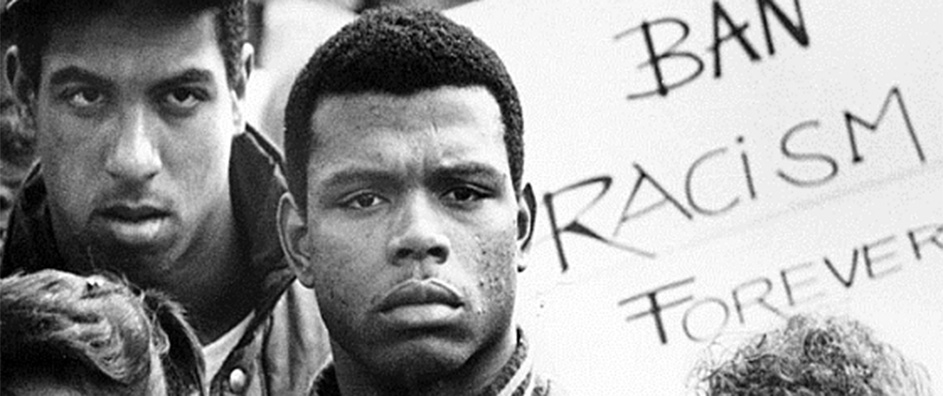
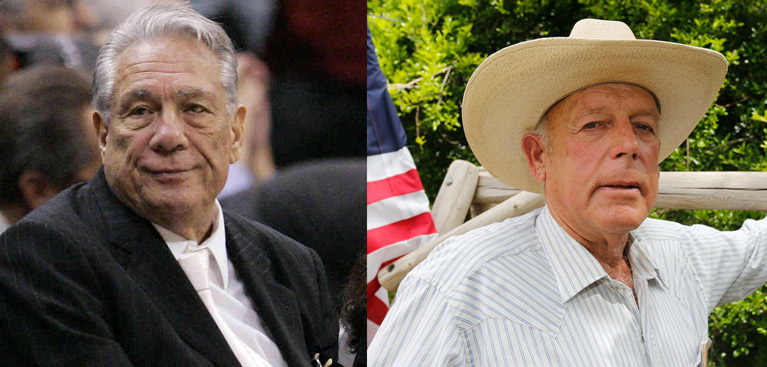

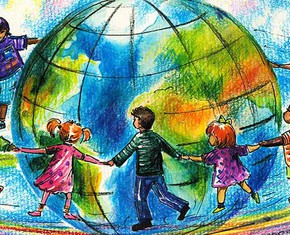

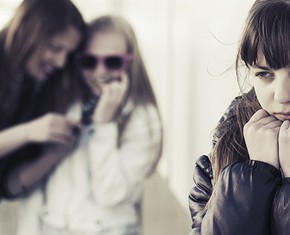









Comments
Sign in or create an account
Continue with Googleor